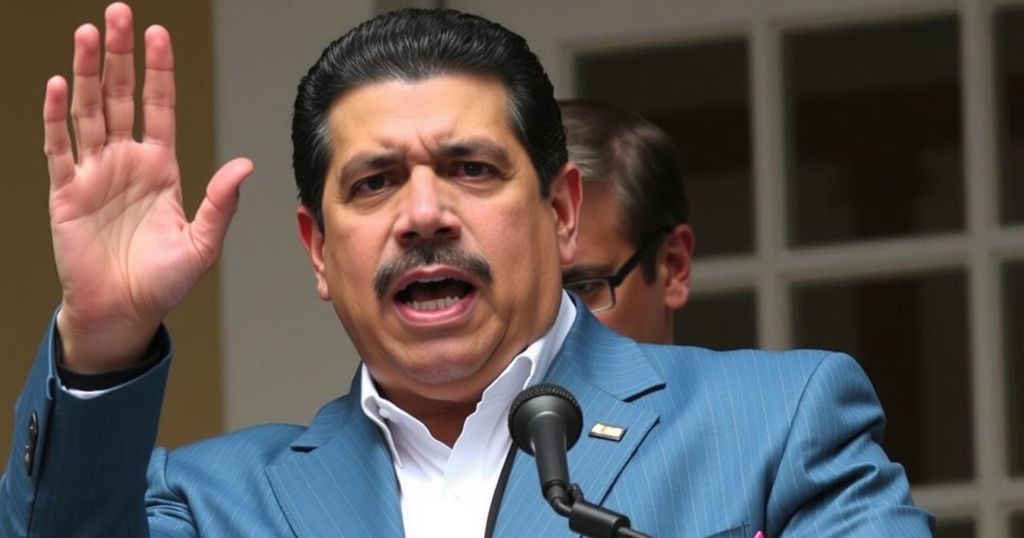Nicolás Maduro has been sworn in for a third term amid contested elections and significant opposition protest. International scrutiny questions the legitimacy of his victory, with leaders like María Corina Machado facing government reprisals. The political climate remains tense, as the Maduro administration grapples with dissent and accusations of human rights violations.
Nicolás Maduro has officially commenced his third presidential term in Venezuela, a position secured amidst significant controversy following elections that many have branded as illegitimate. During the inauguration ceremony before the National Assembly, President Maduro reaffirmed his commitment to peace and progress, asserting, “I swear that this new presidential term will be one of peace, prosperity, equality and new democracy.” The electoral results have faced intense scrutiny, with both the opposition and international entities, including the United States, disputing Maduro’s claim of victory. The opposition leader María Corina Machado’s recent arrest and subsequent release marks a turbulent period for Venezuelan politics as governmental repression intensifies against dissenters.
Despite the declarations of the National Electoral Council, which is perceived as biased toward Maduro, the legitimacy of his presidency is under international skepticism. This environment of contention has prompted further unrest, exemplified by the arrest of Carlos Correa, an advocate for press freedom, which has drawn the attention of the United Nations. The political crisis continues as opposition politician Edmundo González seeks to build international support for his cause while living in exile.
Amidst these challenges, the Maduro government maintains a stronghold, issuing arrest warrants for political adversaries and attempting to quell dissent through forceful means. This persistent backdrop of oppression and the brazen dismissal of foreign condemnation set the stage for a potentially volatile term ahead.
Venezuela’s political landscape is deeply divided, especially following the contentious presidential elections held in July. Nicolás Maduro, who has been in power since 2013, faced accusations of election fraud and manipulation, which numerous opposition groups and international observers vehemently opposed. The legitimacy of the electoral process has come into question, with claims of repression against dissenters and reported intimidation tactics being employed by the government against its critics. The opposition, now led by figures like María Corina Machado and Edmundo González, finds itself under increasing pressure, with many leaders forced into hiding or exile. International reactions, particularly from countries like the United States, have further complicated the crisis, demanding reforms and respect for democratic processes. Additionally, the United Nations has raised concerns about the treatment of activists and journalists, signaling broader human rights issues that accompany the current political climate in Venezuela.
In summary, Nicolás Maduro’s swearing-in for a third term is overshadowed by claims of a rigged electoral process and rising tensions between the government and opposition factions. Despite his assertions of a peaceful and prosperous administration, the reality reflects a nation grappling with political strife, growing dissent, and international condemnation. The arrest and intimidation of opposition leaders, along with the UN’s warnings, highlight the precarious situation in Venezuela as the country navigates another contentious political period under Maduro’s rule.
Original Source: www.bbc.com






